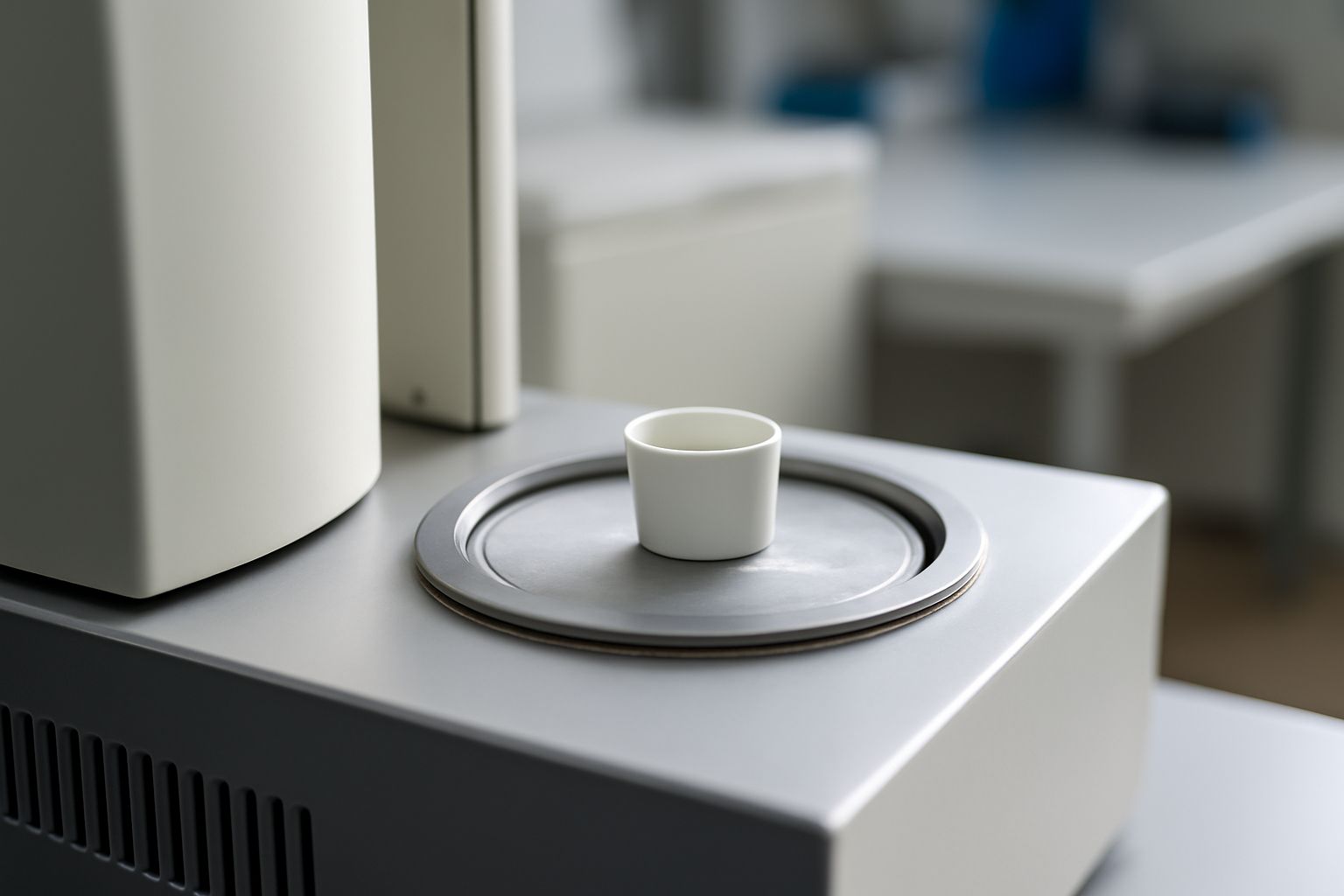Your cart is empty.
shop now
Your cart is empty.
shop now
Thermal tests are only as good as the components used. A strong and stable heat analysis crucible stands between you and costly data errors or failed validation.
Heat analysis crucibles are essential for getting reliable thermal test results. Their integrity ensures samples heat evenly and keep measurements accurate, no matter the temperature or endpoint.

I have seen how the wrong crucible causes repeat work and doubtful conclusions. Choosing the right crucible protects test results for everything from polymers to advanced semiconductors.
Even tiny cracks or warping in a crucible can spoil thermal stability tests and ruin whole sample batches. This problem grows with aggressive heat cycles or repeated use.
Crucible integrity ensures that the vessel does not leak, deform, or interact with test materials during analysis. Good integrity gives you more stable data, limits background drift, and improves batch repeatability (thermal analysis).
| Integrity Factor | Effect on Testing | Test Type Impacted | Result Consequence |
|---|---|---|---|
| Crack-free wall | No leaking, keeps mass steady | DSC, STA | Accurate mass, baseline stability |
| Shape stability | Consistent contact, good fit | TGA, melting point | Repeatable endpoints, valid transitions |
| Chemical resistance | No reactivity, no contamination | All methods | Valid peak, smooth curve |
| Temperature endurance | Prevents warping | Extreme heating/cooling | No test run interruptions |
Getting true measurement data relies on good heat transfer and no outside interference. The crucible’s quality can introduce error or guarantee accuracy in every thermal analysis.
The right crucible delivers even heating and a clean surface. It blocks contamination and keeps the system background low, boosting the repeatability of temperature, enthalpy, and transition values in thermal measurement (calorimetry).
| Crucible Property | Data Accuracy Gain | Measurement Example | Industry Use Case |
|---|---|---|---|
| High thermal conductivity | Fast, steady heating | Melting point, heat capacity | Polymer research |
| Inert surface | Zero sample reaction | Stability profiles | Pharmaceutical analysis |
| Exact geometry | Reliable repeat results | TGA mass loss | Battery R&D |
| Consistent mass | Stops data drift | Energy balance | Aerospace composites |
Product quality, cost, and service can differ a lot between crucible suppliers. Knowing the real differences helps you pick the best brand for both budget and results.
Some brands focus on proprietary materials and strict tolerances; others offer flexible pricing or faster delivery. Comparing specs, reviews, and compatibility charts will help you decide which option is best for your instruments and accuracy needs (brand).
| Brand Feature | Function | Lab Advantage | When to Choose |
|---|---|---|---|
| OEM parts | Exact fit, premium grade | No adjustments, full warranty | Critical science, compliance labs |
| Branded alternative | Strong compatibility, balanced price | Reliable, tested quality | Routine analysis, high throughput |
| Custom source | Tailored size, rare material | Fits unique tests, flexible MOQ | Special projects, new equipment |
| Budget line | Lowest cost, wider tolerances | Entry use, one-time runs | Pilot studies, training |
High temperatures and fast cycles put huge stress on crucibles. Each step of preparation and use matters for protecting structural integrity over time.
Always use slow heating and cooling rates, avoid overloading, and inspect for wear or residue after each run. Track the lifecycle of each crucible type and retire used items before they risk a test. This approach keeps performance optimal and prevents downtime (service life).
| Maintenance Step | Purpose | How Often | Result |
|---|---|---|---|
| Visual inspection | Spot early cracks, shape loss | Every cycle | No unexpected failures |
| Slow ramp rates | Prevents thermal shock | All heating/cooling | Longer crucible life |
| Proper cleaning | Removes residue, stops cross-contamination | Post-test, pre-storage | Accurate, steady data |
| Storage controls | Protects from dust, corrosion | After cleaning | Integrity kept, no lost pans |